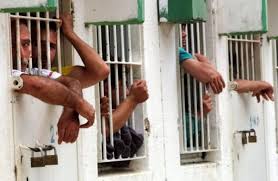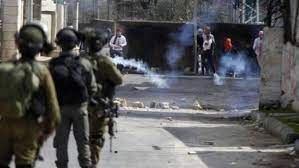Agencies-Gaza post
Palestinian fighters in Israeli jails to step up their protests by dissolving their organizational bodies
Palestinian freedom fighters imprisoned in Israeli jails due to their resistance to the occupation are expected to embark tomorrow on new steps in their struggle against the Israel Prison Services (IPS) by dissolving their organizational bodies in all the jails.
The Palestinian Prisoner Society (PPS) reported that dissolving the corporate bodies means that the prison administration must deal with prisoners as individuals, not through the organizations representing them.
Tension was high in the prisons yesterday after the IPS decided to double the isolation time of prisoners, take away electrical devices from several sections of the jails, and summoned additional forces in several prisons.
The Prisoners and Ex-Prisoners Affairs Commission said repression units were present in large numbers at the entrances to many prisons as prison officials and intelligence officers have intensified their tours of prison departments. Large numbers of police dogs are being used in an unprecedented manner and are continuously present near the entrances of the sections.
It is worthy to note that the prisoners refused last Wednesday to leave their cells for security checks and returned the meals as a protest step approved by the prisoners’ Higher Emergency Committee after the IPS reneged on the agreements and understandings that were reached with the representatives of the inmates’ last March related to points and details of their living conditions.
The inmates also decided on that Mondays and Wednesdays are days to implement the initial protest steps that will end early next September with an open hunger strike in all the jails.
The PPS stated the decision to go on hunger strike will depend on the position of the IPS, and whether or not it continues with its actions against the prisoners.
There are over 4550 Palestinian freedom fighters in Israeli jails, including 31 women and 175 minors, including a girl, and more than 700 administrative prisoners.

















